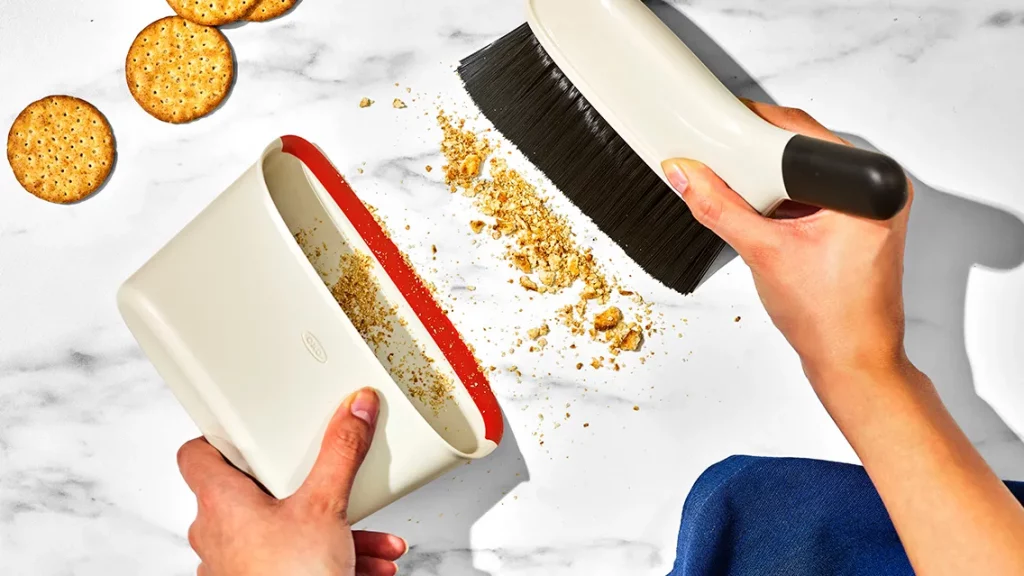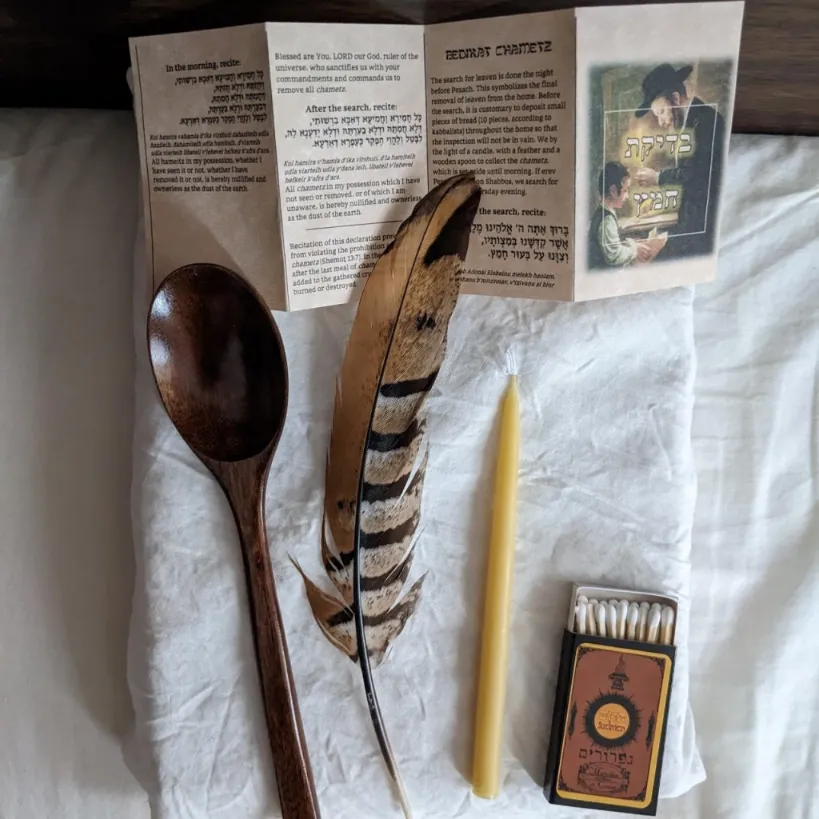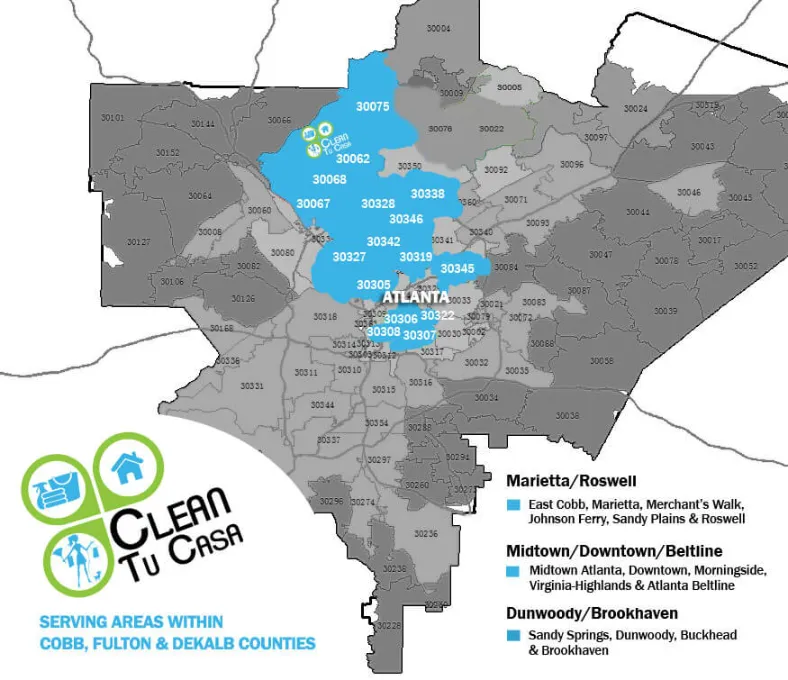Lifestyle
Published On
The Ultimate Passover Cleaning Checklist for Pesach
Written By
Passover, also known as Pesach, is an important Jewish holiday commemorating the Israelites' liberation from slavery in Egypt. This year, it will be celebrated from the evening of Monday, 22nd April to Tuesday, 30th April. Many rituals and traditions are observed during this holiday, including Passover cleaning.
This article will explore the significance of Passover cleaning, the associated traditions and rituals, and some practical tips for properly cleaning and preparing for this important holiday.
Symbolism and Importance of Cleaning for Passover

The importance of cleaning before Passover cannot be overstated. It's a time-honored tradition that dates back to biblical times when the Jewish people were commanded to remove all chametz (leavened bread and other products) from their homes. This practice symbolizes the removal of arrogance and negative traits and the embracing of humility and kindness.
Cleaning before Passover is not just about getting rid of chametz. It's about creating a clean and pure environment conducive to spiritual growth and meaningful celebration. It's a way of physically and spiritually preparing for the holiday.
In Jewish tradition, cleaning before Passover is known as "bedikat chametz." It involves thoroughly searching the home for any chametz that may have been missed during the initial cleaning. Traditionally, this search is done on Passover eve with a candle, a feather, and a wooden spoon, but most Jewish homes start cleaning long before that night.
Once the chametz has been removed, the home is "kosher for Passover," meaning it's free of any chametz and ready for the holiday. This is essential in ensuring the holiday is celebrated properly, with respect and reverence for its traditions.
Passover Cleaning Tips

Now we know you've most likely not started your Passover Cleaning for this year, so you might want to save these easy-to-follow tips as a guide for when you do.
1. Start with a plan
Before you start cleaning, it's crucial to have a plan. Make a checklist of all the areas you want to clean and organize and set a schedule to complete each task. This will help you stay on track and ensure that you have enough time to get everything done.
2. Search for chametz
Remove any chametz you find in every room you enter during your cleaning. Search your home for chametz products, including bread, pasta, cereal, and crackers. Remember to check in pantries, cabinets, and drawers. Remove all chametz products from your home before Passover, either by consuming them or disposing of them in a way that complies with Jewish law. You can also sell your chametz to a non-Jewish person with the help of your rabbi.
Remember to recite the nullification prayer on Passover eve to renounce any chametz that may remain in your possession. This helps you relinquish ownership over any chametz you might have missed while cleaning.
3. Pantry
It’s wise to start here so that if any chametz crumbs fall from the pantry shelf to the counter, you can clean them while cleaning the entire kitchen. One day is enough to clean both your kitchen and pantry. Remove all chametz products from your pantry. This is also an excellent opportunity to check the labels on all products in your pantry to ensure they are certified kosher for Passover.
Consider donating any unopened chametz products to a local food bank or charity. Wipe down all pantry shelves with warm soapy water or an all-purpose cleaner (Dawn soap is one of our best cleaning products at Clean Tu Casa). Remember to clean the corners and edges of the shelves!
4. Kitchen
Next up is the kitchen. Remove all chametz products from your kitchen. Clean the oven, fridge, and stovetop thoroughly to catch any leftover crumbs. Food particles typically build up on the sink and counter, so pay attention to those areas too.
All dishes and utensils used for chametz must be thoroughly washed and cleaned. It’s best to use separate plates and utensils for Passover. After cleaning the surrounding kitchen areas, clean your floor thoroughly to remove any fallen crumbs.
5. Dining room
Wash any linens in your dining room, including tablecloths, napkins, and placemats, to ensure they are chametz-free. Check all your plates, silverware, and glassware to ensure they are chametz-free. If necessary, kosher your dishes according to Jewish law. Use a damp cloth or all-purpose cleaner to clean all surfaces, including your dining room table, chairs, and any other furniture. Pay special attention to corners and edges, where dust and crumbs can collect.
6. Living room
This room wouldn’t take as long as the others we’ve listed above. Use a damp cloth or all-purpose cleaner to clean surfaces like coffee tables, end tables, and shelves. Pay special attention to corners and edges, where dust and crumbs can collect. Vacuum the floor and use a duster to remove any dust or debris from your living room furniture (don’t forget to empty the vacuum bag!)
Wash any linens in your living room that might have cpme in contact with chametz, such as couch covers and throw pillows. You should also check your bookshelves for any chametz crumbs that may have fallen between the pages of your books.
7. Bedroom
Remove chametz crumbs from your closet and drawers, and wipe them down with a damp cloth. Ensure also to check any pockets or crevices where chametz crumbs may have collected. It’s a good idea to select the clothes you’ll be wearing for Passover ad ensure they are washed and 100% chametz-free. You should also change the sheets and blanket covers as close to Passover as possible.
In Summary…
Passover cleaning is not spring cleaning. It is a religious tradition that Jews worldwide undertake and take immense pride in. These easy tips above will break down the chores to make sure you don’t get overwhelmed by the cleaning and lose sight of the joy of the season.
Happy Passover!
